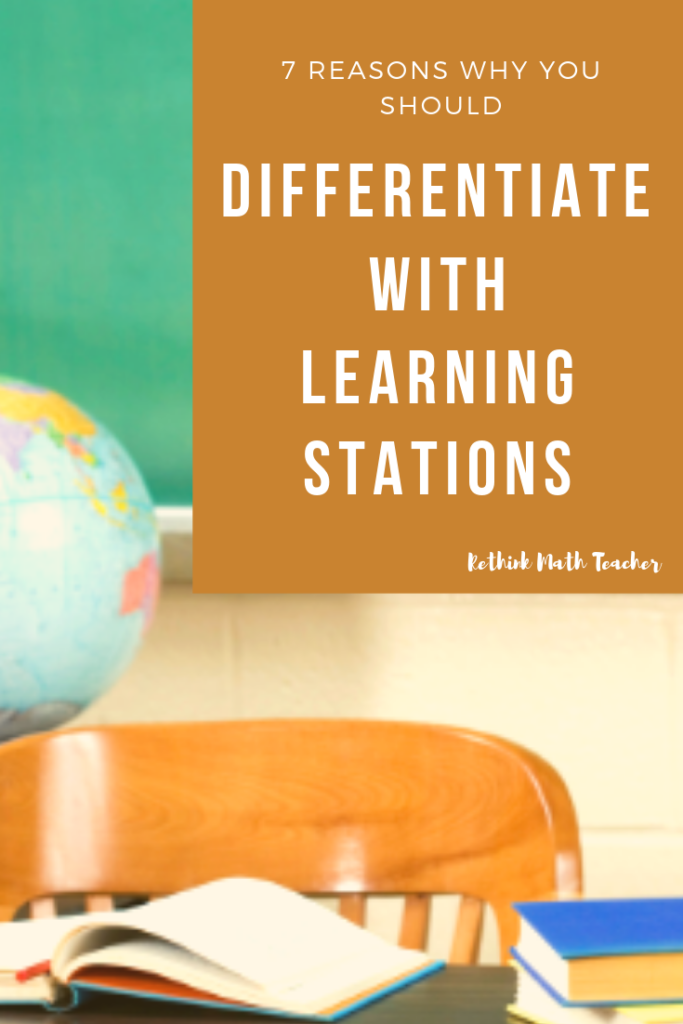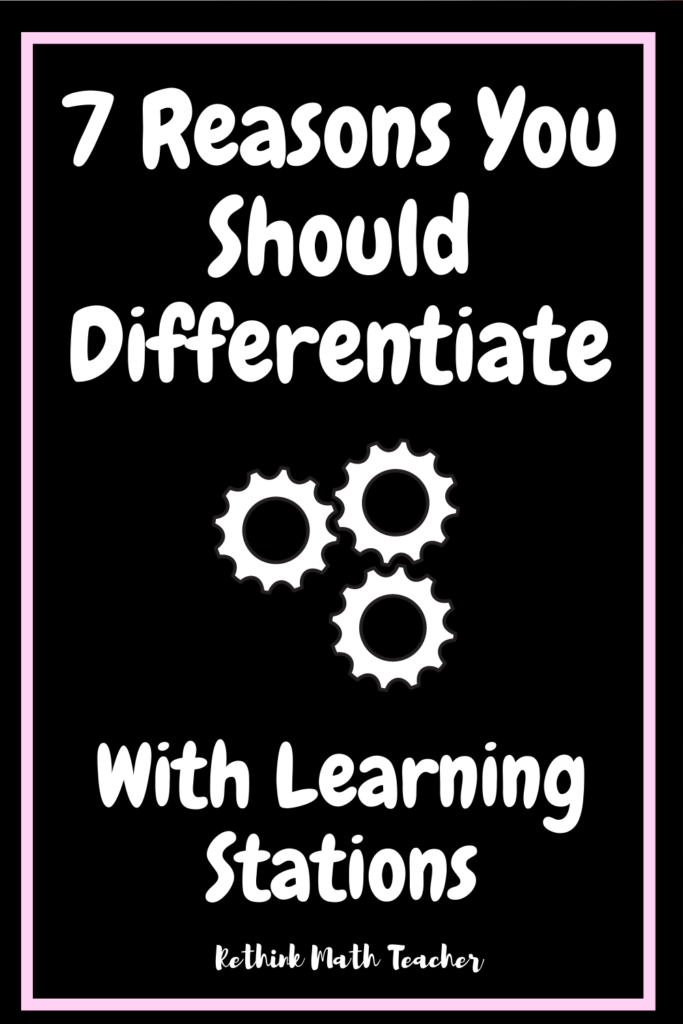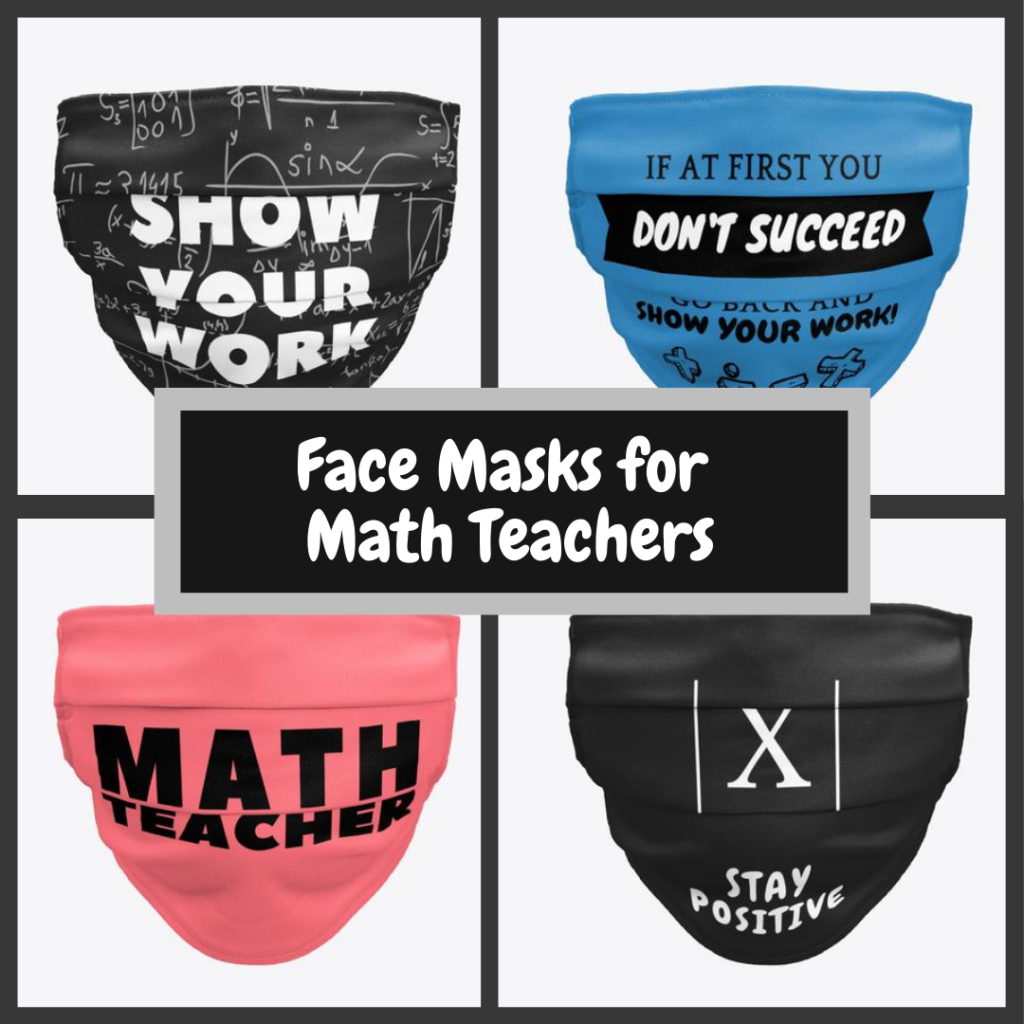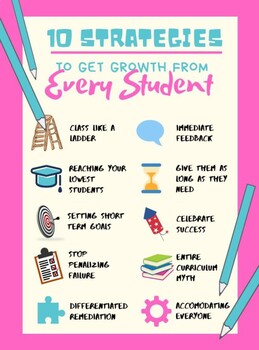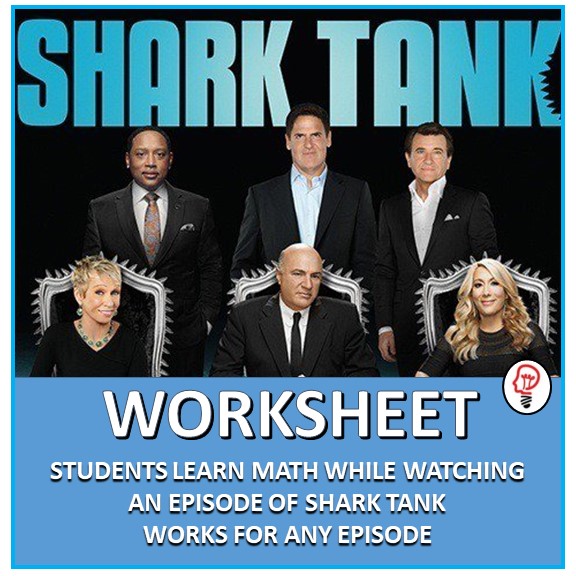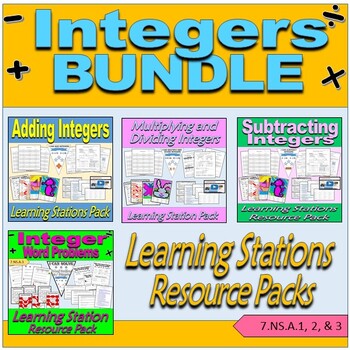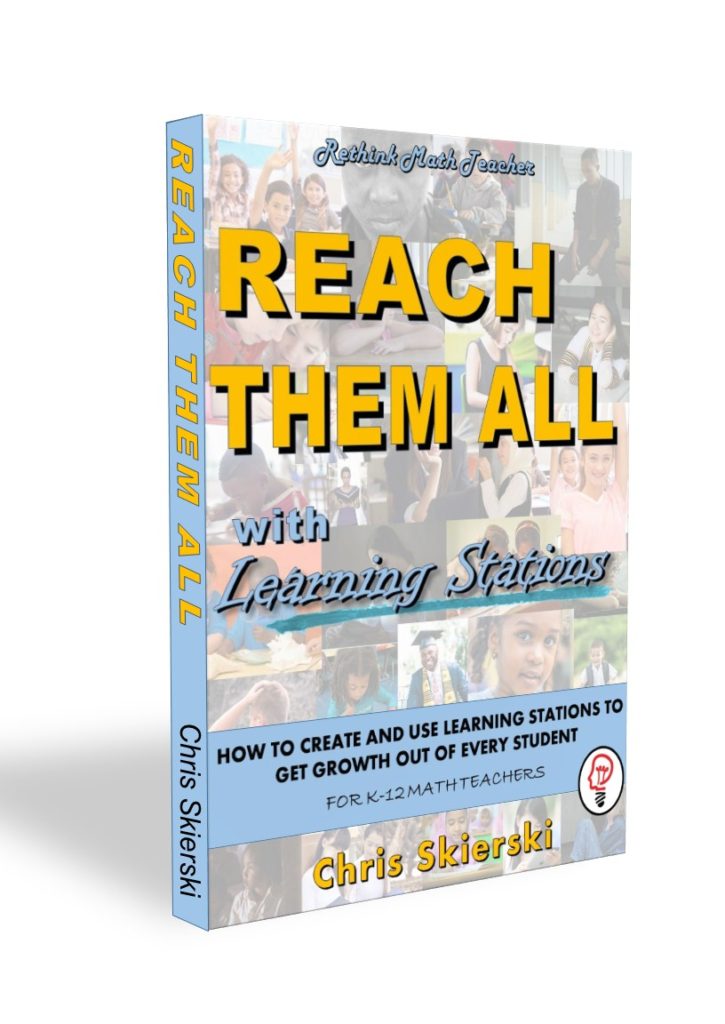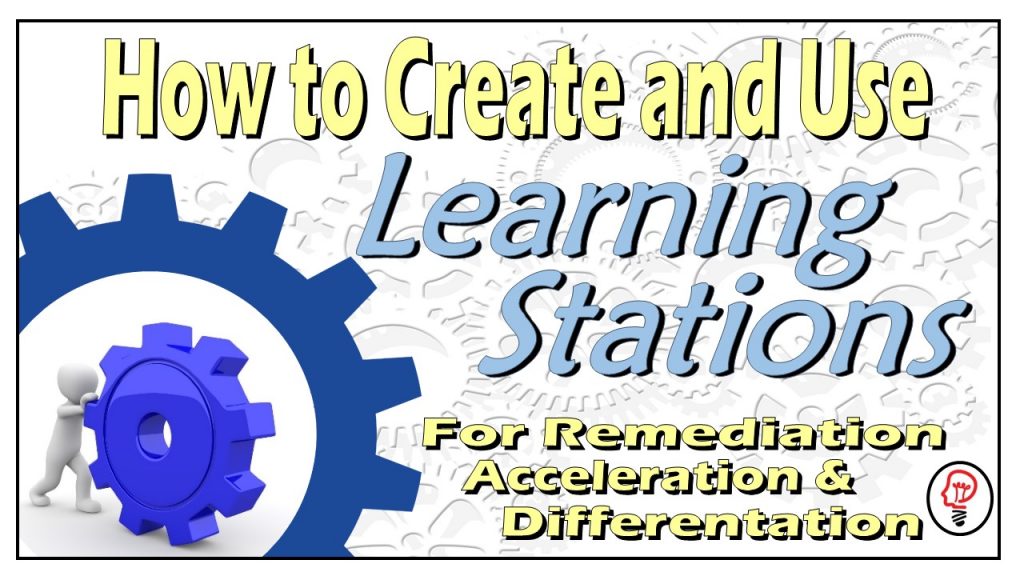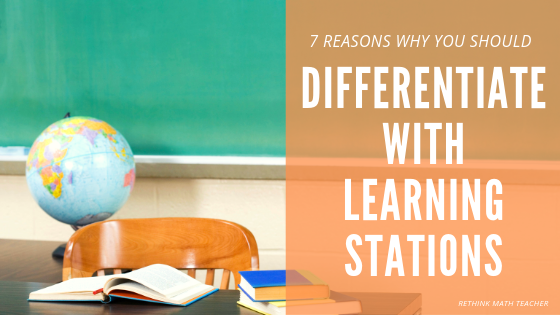
What is Differentiation
We are NOT talking about doing a different activity with every student on the same skill. When we talk about differentiation through Skills Based Learning Stations, we mean that every student is working on a different skill – the one that they need help on.
To learn more about skills based learning stations, click here.
Why Differentiate
Not everyone in your class has the same needs and abilities. Some are not able to do some of the skills needed to perform the grade level work. Some take longer than most to learn something, while others move quickly. Some students make a lot of mistakes and need to learn from them, others require more practice than the majority of students to master a concept.
How can you reach all of these students at the same time?
Not through whole group instruction!
Why NOT Whole Group Instruction
When you teach one lesson to the whole group, you assume that everyone is in the same place, having mastered all the previous skills, and can move together at the same rate.
This never happens.
Some students get stuck, and need more support, but since the class is moving on, they don’t receive it and get left behind.
Some students were left behind by previous teachers and need to go back to learn those previous skills that are preventing them from doing the grade level work before they’re ready to learn the skills that you’re teaching.
While still others are ready to move on, but can’t because the class isn’t there yet.
Students learn at different rates with different amounts of practice (so do adults, by the way). But when you pace everyone together, some get left behind and others get held back.
If you allow every student to work on the skill that he/she needs to develop, then every student has a much better opportunity to make real growth.
Here are 7 Reasons why you should differentiate with Learning Stations
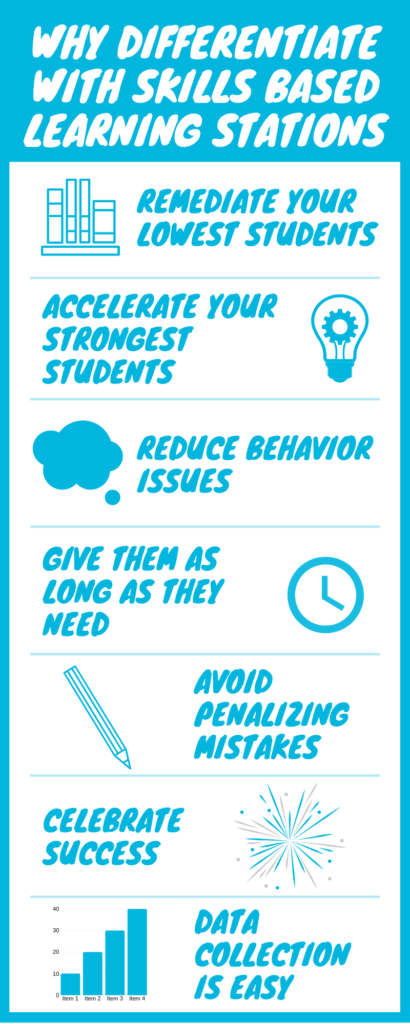
1) You can Remediate Your Lowest Students
Think about the lowest students in your class. They are often at least a full grade behind the majority of the class; often lacking the basic skills required to do the work you are presenting to your students. They don’t understand anything you’re saying because they never mastered the concepts needed to do this work.
They also (often) work slower than the rest of the class and require more practice than most to master a concept. This is part of the reason they are so far behind; previous teachers could not give them the time and practice repetitions that they needed because they were doing whole group instruction.
By differentiating your instruction, you can target these students’ needs, and give them the practice and support they need to master these skills. By doing so, they will make real growth. As they master prerequisite skills missed in previous grades, they will gain confidence and strive to do better.
I have had many students come to me years behind their peers, and get caught up to them by the end of the year simply because I targeted prerequisite skills, gave them sufficient time and practice, and I celebrated their success with them.
2) Accelerate Your Strongest Students
Some students work faster than the rest of the class. They grasp things quicker and master it with few repetitions. These people are called ‘naturals.’ All of us are naturals at something; being able to make quick sense of a task or skill that others consider difficult – and for some of us, that something is math.
Your advanced students often get penalized for moving quicker. Some teachers give them busy work when finished, others force them to help their peers or ask them just to sit there, quietly, until the rest of the class has caught up to them. These students are often forced to work on the same skill for multiple days, thought they don’t require this extra practice; they’re ready to move on.
Instead, challenge these students. Allow them to grow, and reach their real potential.
Skills based stations allow you to let that student move on to the next skill and then the next skill without waiting on other students or being forced to remediate a skill because most of the class has not yet mastered it.
3) Reduced Behavior Issues
When everyone is being challenged at their level, and their success is being celebrated, they are much less likely to get into trouble or become a distraction.
Think about our two students listed above. The first is far behind his peers. As his teacher drones on about things he doesn’t understand, and forces him to attempt work that makes no sense to him, of course his mind wanders. He looks around the room, seeking something to occupy his attention or talks to a neighbor. He gets in trouble and is told to do his work, which he doesn’t understand and cannot do – causing him to get into greater trouble.
Similar issues can be caused by the more advanced student who is bored or finished with her work and has nothing to do. Both students are less likely to get into trouble simply by being given work that’s on their level and challenging to them.
I once had a student who got in trouble in all of her classes. She was a constant discipline issue for most teachers, and math was her least favorite subject. But when she finally mastered her first learning station, and got an A on her test, she cried. We called home together to celebrate her success. I didn’t tell her, nor her parents, that she had mastered a skill that she should have learned year ago – we simply celebrated her accomplishment.
That student was given hope that she could be successful, and she ambitiously tackled the next skill, and the next. She was never a discipline issue for me, not once. I never sent her out of the room, or wrote her up. In fact, when other teachers sent her out for misbehavior, she came to my room to do more math! Why? Because success is a wonderful feeling, and it helps reduce discipline issues.
4) Allow Students the Time They Need to Master a Concept
We’ve already addressed the fact that students learn things at different paces. The traditional classroom, with whole group instruction, does not accommodate such differences. Everyone is paced together, and if you can’t keep up, you get left behind.
But when students are put in a skills based learning station, they stay in that station until they master the concept. So if they need more time than most, they are afforded it – without consequences. If they need more practice than the average student, they can easily find that as well.
What if they take a really long time?
I once had a student who took weeks before she finally mastered her first concept. It took so long for her to finally grasp the skill that even I was about to lose hope. But one day, it clicked, and she finally mastered that skill. And that success led to more success, and she soon caught up with the class.
If it takes someone a long time, that’s okay. Continue to accommodate them, and give them extra support – but don’t give up on the process. It does not make sense to move your student from one skill to the next until (s)he masters the first.
5) Avoid Penalizing Students for Making Mistakes
What happens in a traditional classroom when a student makes a mistake on a worksheet or test? They get the question wrong, they lose points on their paper, and then they move onto the next skill. Soon, they might be afraid to make a mistake.
But mistakes are part of the learning process. Mistakes are great teachers. So don’t penalize students for making them.
In a skills based learning station, when a student makes a mistake, he is quickly shown that mistake so that he can learn from it. And there’s no need to fear penalization, because he can stay in that station, working on that skill, until he masters it. Once he’s mastered it, he gets the good grade and is promoted to the next skill.
6) Celebrate Student Success
We rarely celebrate our students’ academic successes, especially not the little ones. But those are important. Learning your times tables is a big deal, it sets you up for success for the rest of your academic career. And there are hundreds of other concepts that we should celebrate.
With skills based learning stations, it’s obvious when a student has mastered a skill, so it’s easy to celebrate their success. And when you do, your students will respond accordingly, and desire more success – which will promote growth and reduce discipline issues.
7) DATA!
As your students master skills, and you celebrate it, data tracking is automatic. I had pennants all over my room for each skill that the students had mastered, so data collection was occurring naturally. And my administrators loved seeing it.
Beyond that, it was easy to show how this data was driving my instruction. Not to mention how easy it was to show the growth that my students had made.
You Should Begin
Skills based learning stations are perfect for every math class, and they will lead to great growth amongst your students.
I have three ways for you to learn more:
The Learning Stations Cheat Sheet
This is a free PDFdownload with links to more articles and resources to help you deepen your understanding and get started with learning stations.
The Book – Reach Them All
For a more intense, and detailed resource, I have written a book that walks you through the step-by-step process so that you can create learning stations in your math class and implement them immediately – with success.
The book comes with additional resources to help you through this process, as well as plenty of illustrations that do the same.
The Online Course – How to Create and Implement Learning Stations
This is the most hands-on approach to learning about skills based learning stations, creating them, and using them in your classroom. It is also the quickest way to consume the material. This 3-part course will walk you through how to create them quickly and easily, how to embed reteaches and automatic feedback into your station, where to compile all your resources, how to implement them, and more. Plus receive plenty of resources to help you be successful.
BONUS: enrollment in the course now includes a free digital copy of the Book “Reach Them All”
Click here to enroll in the online course, and get the eBook for free!
More Articles on Differentiation
- Uncommon Teacher Challenge
- What is Differentiated Instruction
- Challenging Your Stronger Students While Reaching Your Weaker Ones
- How to Differentiate Instruction in Your Math Class
- Differentiated Remediation
- Plugging the Holes – Remediation that Works
- Why You Should Create Learning Stations
